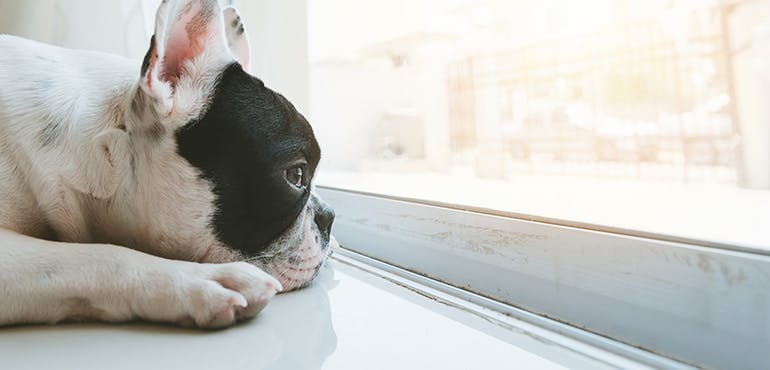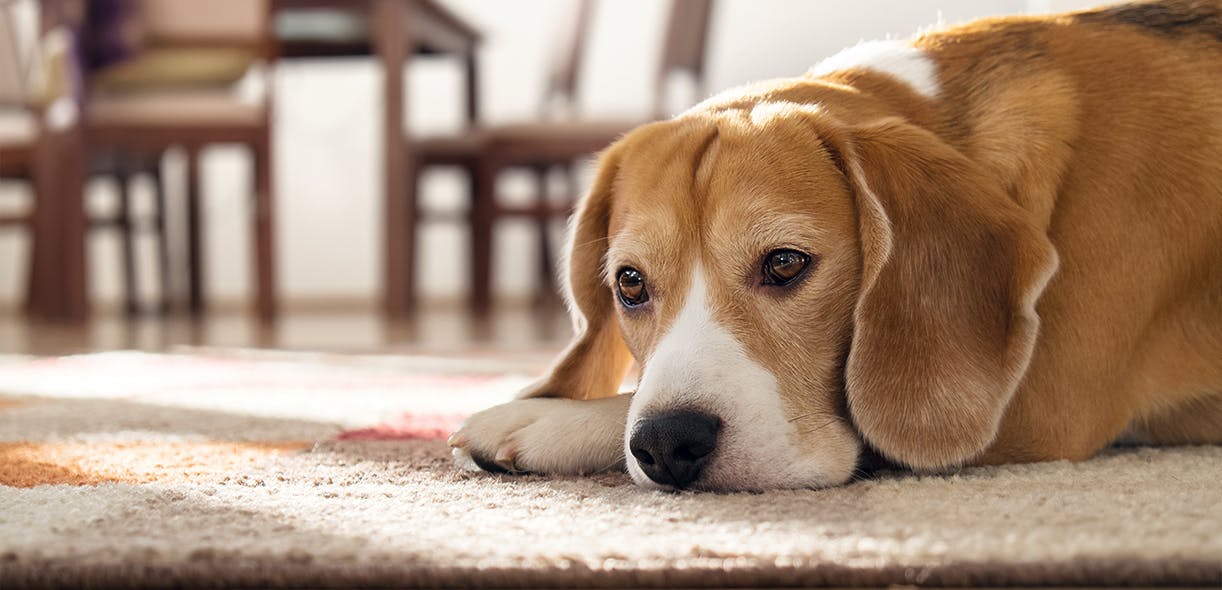Jack, a German Shepherd Cross, was 2 years old when Geneviève and Patrick adopted him through Petfinder. The couple bought their new dog a boatload of toys, walked him twice a day, almost never left him alone, talked to him in gentle, soothing tones, and attempted to pet and win him over. But Jack—nervous and highly-strung—barely looked at them and slept in a corner by himself.
“When you adopt, it's normal for a dog to ignore you at the beginning,” explains Francis Rousseau, a technician at the Behavioural Medicine Service at the DMV Veterinary Centre in Lachine. “Imagine that, without warning, you were forced to live with new housemates. You wouldn't be expected to develop warm relationships with them overnight.” Some dogs take longer to adapt to new circumstances than others. Once you've given the dog the time it needs to get used to its new surroundings and family, the emotional bonds will follow. It took Jack several months to get comfortable and begin to take a liking to Geneviève and Patrick.
Why does it take so long?
A dog that has stable and reassuring relations with people as a puppy is likely to enjoy well balanced human relationships throughout its life. On the other hand, if the dog's early experience with people is problematic, the dog will have a higher risk of anxiety and anti-social behaviour.

We've all known a dog that clings to its owner for dear life. Or the anxious dog that howls up a storm and devours furniture whenever its owner leaves the house.
“Dogs like Jack behave as if they're all alone in the world because that's the experience they've had,” explains Amelie Martel, Animal Welfare Director at the SPCA in Montreal. Guard dogs, for instance, that are chained up all day, might see their owner only at feeding time. Other dogs might feel alone because they were abandoned by someone they loved. And a dog that has had several owners may feel lonely because, in its mind, relations with people are only temporary and interchangeable. In extreme cases—such as dogs rescued from puppy mills or butchers in Korea—dogs may never learn to socialize.
“For these dogs, independence has become their survival mode,” adds Gaby Dufresne-Cyr, founder of Dogue Shop in Montreal and the author of Dog in the Mirror is God, about attachment disorders. “Ultimately, there's not much of a difference between a dog with separation anxiety and one that's extremely independent. Both dogs suffer from emotional deprivation.” Here are some suggestions to help improve their quality of life—and ours:
Never approach or pet a dog against its will. Be patient and use positive reinforcement. “You can give a dog a treat each time they look at you,” suggests Amelie Martel. “You can also try to attract their attention by playing with a ball or by tempting them with mentally stimulating activities.”
- Your dog's environment should be stable. “Develop a routine and avoid uprooting your dog—for instance, by boarding them because you're going on vacation,” says Marine Cassoret, a PhD in animal sciences and animal behaviour counsellor.
- “Medical therapy for fear and anxiety disorders can be an excellent tool,” adds Dr Cassoret, “because it will allow the dog to better manage new situations and to develop emotionally.”
- In tougher cases, it can be a good idea to hire an animal behaviourist.
The experts interviewed for this article all agree that, given the right circumstances, a dog will develop loving bonds with its owner. With patience and perseverance, you'll get there. Just like Jack's owners did.
Have you experienced similar behaviour issues with your dog? How did you win your dog over? Head to Facebook to share your experience with other Pawsies.
